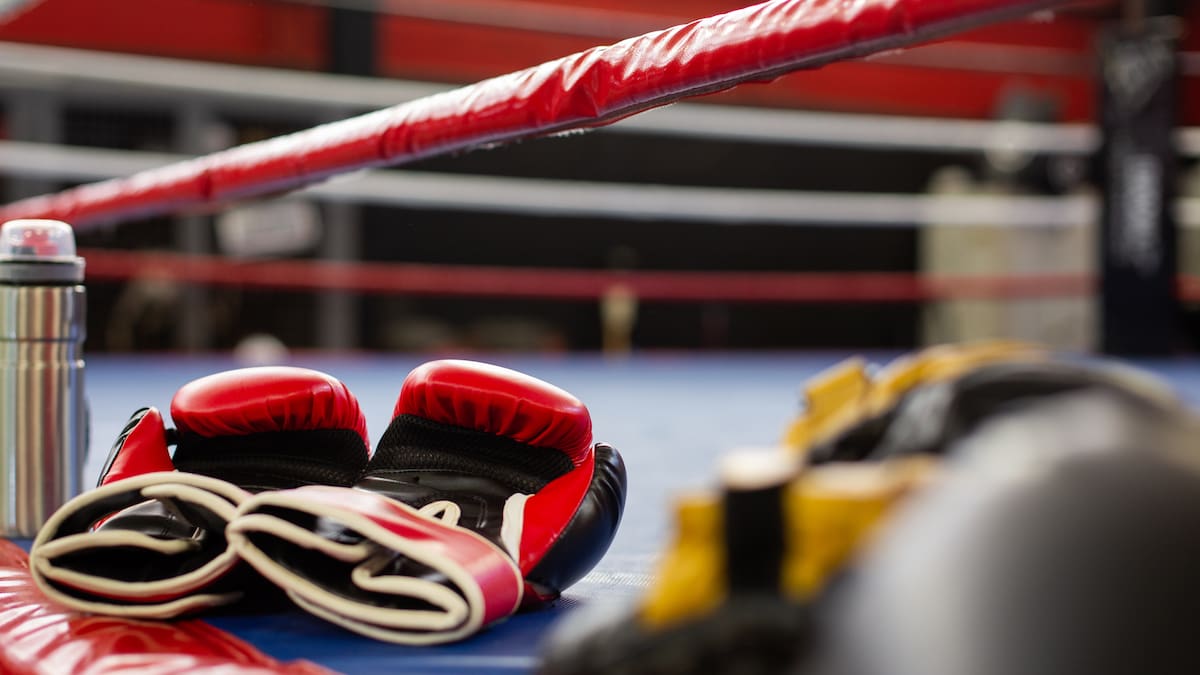I still believe that Tania Kura is a worthy and highly competent woman.
And I thought that Paul Basham did a really good job in managing the implementation of the “gang-patch ban” policy.
Anyway, back to the point.
Following the police-directed cancellation of the Wairoa Boxing Club’s fund-raising fight night, Mitchell, this time with his Sport and Recreation Minister hat on, agreed that there is a place for boxing gyms and combat sports “for anyone that has got energy that they need to release”.
That’s a truth.
Young people, young men especially, are full of energy and want to test themselves out against others, their peers, the “opposition”.
There are psychological impulses, social conditioning and cultural expectations.
Hence the Kiwis, the All Blacks, Kai-Kara-France and mixed martial arts.
Black Power life member Denis O’Reilly. Photo / Paul Taylor
Mark Mitchell cautioned that fight events needed to be staged in a controlled and positive way, be based on a tikanga, a set of values, and have the right people around them.
“If they’re bringing expertise in, if they’re introducing rules, if they’ve got proper medical support there, then that’s a positive thing without doubt.”
Inspector Danny Kirk, the Tairāwhiti police area commander, based the decision to cancel the Wairoa event on the principle of public safety.
He gave as evidence recent gang-related shootings, an aggravated robbery, an arson and the involvement in the fight night of several people with gang associations.
To be fair, it would be difficult to find many whānau in Wairoa who in one way or another would not be connected to a gang, such is the nature of provincial New Zealand society.
Kirk’s apprehension is reality-based.
Last year, we had an incident in Hastings where a vanload of rugby players was shot at by gang members, although most of the passengers in the van had no gang affiliation whatsoever.
Although never publicised, I also heard this year of a gang-related attack at McLean Park following a rugby finals match.
Kirk said there was an opportunity for police, community leaders and gang leaders to come together for a “robust conversation” about how the unlawful behaviour of a few can impact pro-social community events like the fight night and to seek solutions to bring an end to long-standing instances of intermittent gang violence.
Right on. Let’s do this.
In the mid-1980s, I chaired the Putanga Gymnasium in Hastings.
It was run by the late Herewini “Selwyn” Jones and engaged leading members of the Mongrel Mob and Black Power in martial arts based on Muay Thai. Fighters such as Hape Ngaranoa, Mark Hunt, Jason Rarere and Marlin Hodges were involved. Any inter-personal beefs were sorted in the ring. Rules applied.
At the time, Hawke’s Bay rugby league was also at a high and many of the referees and administrators were members of the New Zealand Police.
Most teams had gang membership. There were always people on the periphery that found the discipline of training and good sportsmanship too challenging and wanted to resort to sideline antics and disruption to disguise their lack of personal courage and low self-esteem.
We had to manage them, each rōpū owning their own miscreants and exerting control.
My tuakana Māori, Don Ihaia Hutana, called me, late this rugby season, to join him at a match at Park Island in Napier between his beloved club Tamatea and a team from Raupunga (YMP) as a device to mitigate the risk of a repeat of the shooting incident.
There we were, a septuagenarian and an octogenarian, sitting side by side, signalling our investment in a pro-social outcome.
One of my grandsons, a Mongrel Mob member, was playing for Tamatea. Don Ihaia Hutana had whānau in the YMP team.
It was a great match played in good spirit. Society won on the day.
As Kirk says, let’s have a robust conversation and sort this out. Let’s engage in sport and let the best person on the day win, the best team take the laurels.
In a time when we seem beset by cynicism and division, I invoke the memory and spirit of Herewini Jones and putanga. And what does putanga mean? Why, “emergence, appearance, entrance, opening, escape, a way out”.

